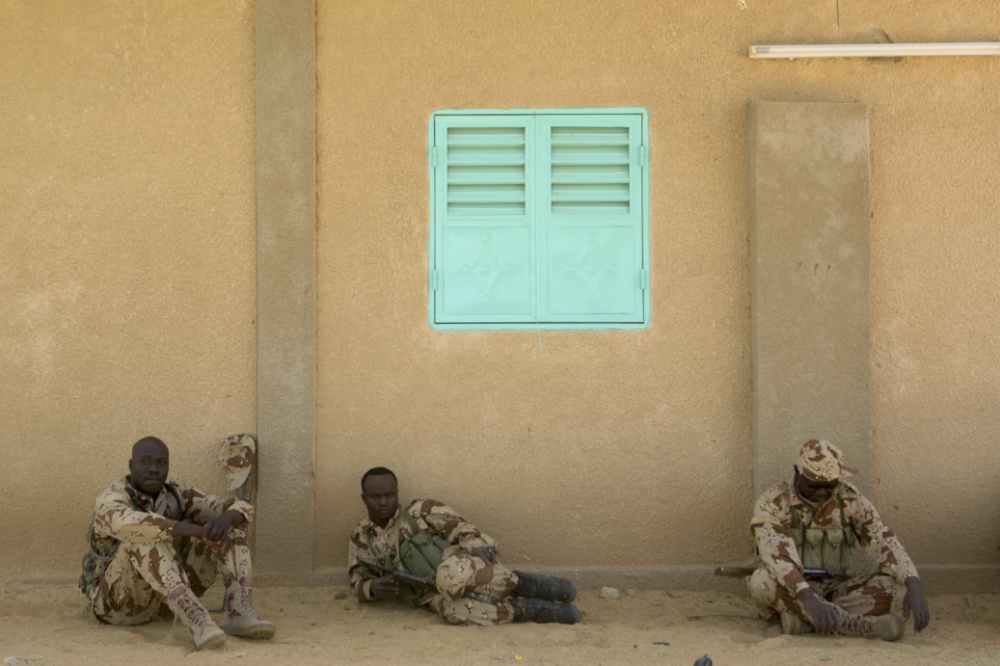Dakar, Senegal
Thomson Reuters Foundation
Unequal access to wealth is one of the main causes of worsening violence in West Africa’s Sahel, which has forced millions to flee their homes, conflict analysts said on Thursday.
While Islamist groups are active in the troubled region, just south of the Sahara desert, the unrest is driven more by inequality than poverty or religious beliefs, found a study commissioned by the aid group Catholic Relief Services.

Chadian soldiers take a break during Flintlock 2014, a US-led international training mission for African militaries, in Diffa, Niger, on 4th March, 2014. PICTURE: Reuters/Joe Penney.
“Community members are saying, ‘We see people in the capital cities who have all this wealth but in these rural areas we don’t have any of this’,” said Patrick Williams, CRS programme manager for the Sahel Peace Initiative.
“It’s not that people are poor, it’s that the wealth, the resources that are there, aren’t equitably managed and shared,” Williams told the Thomson Reuters Foundation.
Conflict in the Sahel has caused one of the world’s biggest humanitarian crises, with 24 million people in need of aid this year and 13 million going hungry, according to the UN Office for the Coordination of Humanitarian Affairs.
With its vast, loosely controlled desert expanses and porous borders, the Sahel has proved to be fertile soil for the rise of Islamist militancy in one of the world’s poorest regions, while climate change has worsened competition for dwindling resources.
CRS spoke with hundreds of people in the tri-border zone of Mali, Burkina Faso and Niger in April, many of whom said youth unemployment and lack of economic opportunities were the main cause of violence, driving many to join armed groups.
The wealthiest one per cent of West Africans own more than everyone else in the region combined, and their governments are doing the least in Africa to reduce inequality through policies like taxation and social spending, Oxfam said last year.
Groups linked to al-Qaeda and Islamic State are expanding across the region, while local militias and defence groups also wage attacks. Some community members told CRS they did not know why people were fighting or who was attacking them.
In Mali, where France intervened in 2013 to drive back jihadists who seized much of the country in 2012, frustration over insecurity, corruption and economic hardship led to mass protests and a coup in August.
To the south in Burkina Faso, grazing areas and water resources are being depleted and locals feel aggrieved over restrictions on access to national parks, said Nadia Adam, a researcher at the Institute for Security Studies.
“Unequal access to wealth and resources is one of the drivers of conflict in the region,” said Adam, who works in Mali for the African think-tank.
Although economic and social grievances are a factor, religious beliefs must not be overlooked, said Jean-Herve Jezequel, Sahel project director at the International Crisis Group.
“It does make a difference if you fight for jihadi groups or if you fight for local militia,” he said.
“Let’s not underestimate the role of religion in recruitment, in explaining how people fight.”





